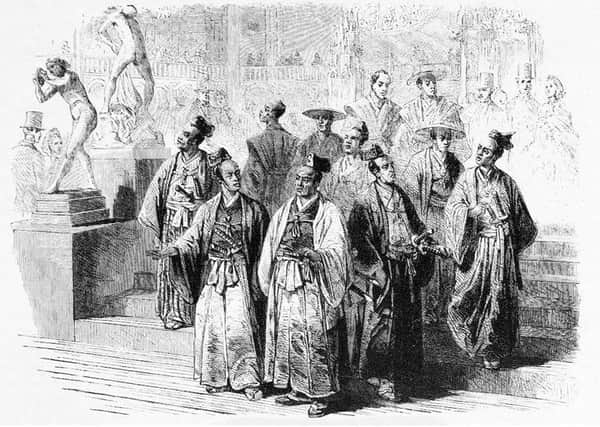THROUGH THE ARCHIVES: Japanese ambassadors are entertained during stay in London


A party of Japanese ambassadors and their officers had been availing of their time in London this week in 1862, reported the News Letter.
The attaché of the English Legation in Japan, a Mr Macdonald, had had a busy showing his guests of what was best of the British capital.
Advertisement
Hide AdAdvertisement
Hide AdThe paper also noted that many were doing their best to pick up English.
Its correspondent wrote: “Already many of them have picked up several familiar English words and expressions, and manage to make themselves understood. Most of them are provided with dictionaries in English and Japanese which they study assiduously.”
Meanwhile, noted the paper, “the ambassadors and officers have not so far adapted themselves to European usages as to abandon chopsticks”.
And that at every meal they feasted on fish (“occasionally raw”) and rice. Earlier that week the delegation had left Claridge’s Hotel on Brook Street shortly before 11 o’clock that morning and did not return until after midnight.
Advertisement
Hide AdAdvertisement
Hide AdDuring their day in London they had paid a visit to the House of Commons “where they remained for some time occupying the seats in the Peers’ and Ambassadors’ Gallery, before then moving on to the House of Lords.
They had also had a trip to Lancaster’s gun factory with which “they were particularly interested”.
The paper noted that of this visit that the ambassadors had been fascinated by the machinery.
It was believed that the ambassadors would also visit the Mint, the Bank of England and would “make an appearance” on the Epsom Downs at the forthcoming derby day.
There was also to be a grand review at Woolwich in honour of the ambassadors.
Comment Guidelines
National World encourages reader discussion on our stories. User feedback, insights and back-and-forth exchanges add a rich layer of context to reporting. Please review our Community Guidelines before commenting.